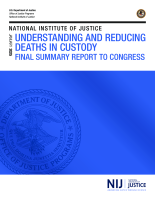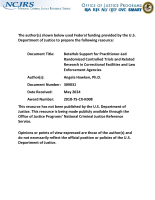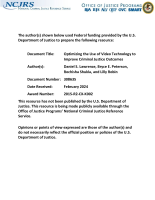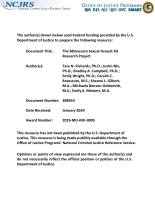Understanding the Needs of and Resources for Victims of Criminal Justice System-Related Harm
Date Published
December 2024
Agencies
NIJ-Sponsored
Publication Type
Report (Summary)






